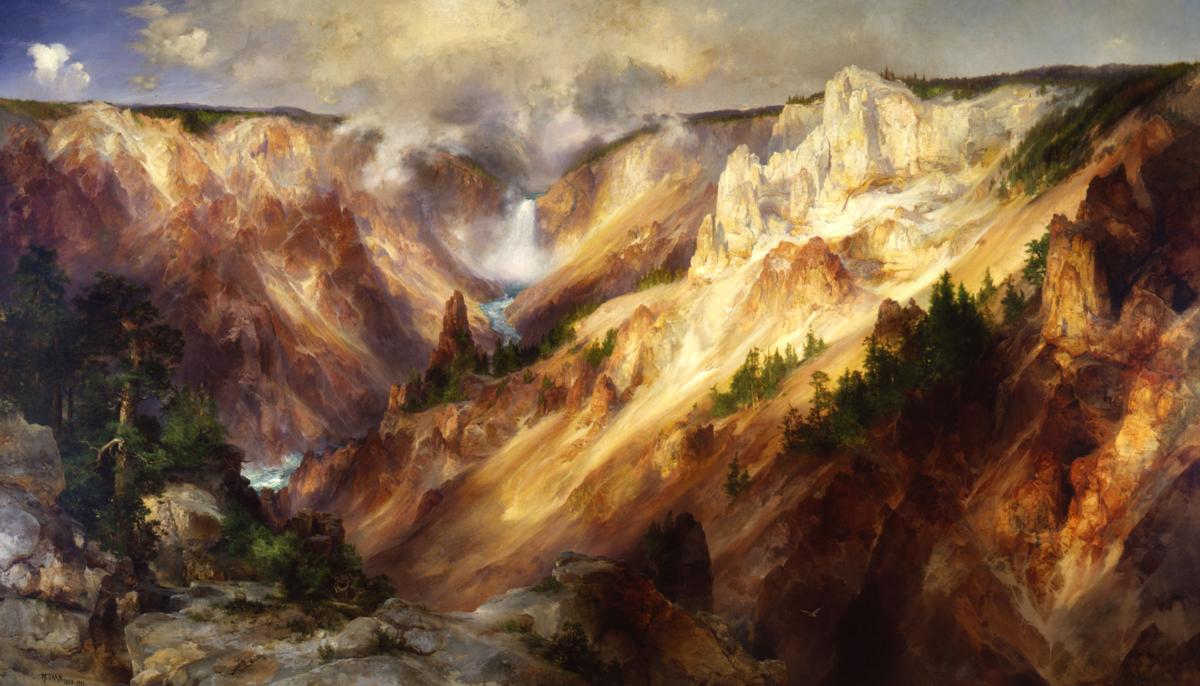I know it sounds like a crazy idea but hear me out. The first few generations of creators in a genre tend to take inspiration from sources outside the genre they are creating. Early Cyberpunk took influences fro Film noir, early superhero creators took influences from the pulps, and myth etc. This makes sense. The genre isnít big enough or self sustaining enough to be incestous yet. But that third generation, the generation that grew up with the genre changes things. Itís usually at that time that stuff begins to change. The genre almost always becomes more internalized as primary influences shift from external influences (other genres, classic literature etc.) to internal ones ( other works within the genre, namely the works the author grew up on). It works out pretty well at first. These authors usually bring new insights to old ideas. But what inevitably what starts happening in this period, is that people start canonizing, what the genre is and isnít. Tropes start to become cliches, and the whole thing starts to become really incestous and unoriginal. The only time innovation happens after this point is if someone who didnít grow up in the fandom, decides to write in the genre. And usually in that case the readers usually hate it. Theyíve been trained to look for tropes rather then story.
Results 1 to 15 of 33
-
02-02-2018, 11:47 AM #1
 Fans becoming creators equals the death of innovation in a genre.
Fans becoming creators equals the death of innovation in a genre.
-
02-02-2018, 11:51 AM #2

I wouldn't sweep with too broad a brush on this. Fans becoming creators...has worked in many instances and probably not worked in many instances.
Things I love: Batman, Superman, AEW, old films, Lovecraft
Grant Morrison: ďAdults...struggle desperately with fiction, demanding constantly that it conform to the rules of everyday life. Adults foolishly demand to know how Superman can possibly fly, or how Batman can possibly run a multibillion-dollar business empire during the day and fight crime at night, when the answer is obvious even to the smallest child: because it's not real.Ē
-
02-02-2018, 05:00 PM #3BANNED

- Join Date
- Aug 2015
- Location
- Los Angeles
- Posts
- 6,270

I think more often what causes the decline in an art is that a new wave of people come in who have no real love for what they're creating. They're lured by the money.
A good example is the Beatles. They were huge fans of the kind of music they played. When they appeared on the Ed Sullivan show, John Lennon told one of the producers, "I can't believe I'm playing on the same stage Buddy Holly played on."
Try finding a music star today who would say something like that. Now what people in the music business produce tends to be a cynical calculation. If people like crap, they'll gladly produce crap.
-
02-02-2018, 05:14 PM #4Invincible Member

- Join Date
- Apr 2014
- Location
- Chicago
- Posts
- 20,010
-
02-02-2018, 05:27 PM #5

So, the 1960s and 1970s signaled the death of "innovation" in comic books?

-
02-02-2018, 05:30 PM #6BANNED

- Join Date
- Aug 2015
- Location
- Los Angeles
- Posts
- 6,270

Lennon said the first time he heard Heartbreak Hotel, it paralyzed him. He said, "It was so good, I couldn't move."
That's the attitude that produced the Beatles' great music.
Lennon and the other Beatles saw this in England:
https://www.youtube.com/watch?v=bfu_gfPBPWc
-
02-02-2018, 06:28 PM #7BANNED

- Join Date
- Aug 2015
- Location
- Los Angeles
- Posts
- 6,270

You find a few people who create what you really like, and you learn from them. You figure out how they do it. That's where good stuff comes from. Either you love what you play, or you play down to the audience.
https://www.youtube.com/watch?v=Ub_Ndas3Fgw
-
02-03-2018, 05:09 AM #8

70ís most definately. In the late 50ís and 60ís there was still a lot of creators who were hold overs from golden age working in comics. Plus you had that whole period between the gold and silver ages where Superheroes werenít as popular so creators had to be versed in other genres. To me the 70ís marks the point were fans took over really. Itís no accident that the 70ís marks the point where the number of new Superheroes being introduced took a nose dive. Fans tend not to prefer nolstalgia over new.
-
02-03-2018, 08:14 AM #9

That simply isn't true. Superheroes were, and still are dominated by the Big two, who continue to produce books with their copyright characters.
But over the last few decades those unoriginal fans have created hundreds of new creator owned books and characters.
"Fans" have been writing Science Fiction since the days of Asimov and Clarke.
"Fans" have been making movies since talkies began. George Lucas was a fan. Spielberg was a fan. Scorsese was a fan.
And in comics, all those new artists and writers in the 70s were fans. Wolfman, Wein, Goodwin, Miller, Wrightson, Smith, Chaykin, Perez, etc...
I find your whole premise spurious.There came a time when the Old Gods died! The Brave died with the Cunning! The Noble perished locked in battle with unleashed Evil! It was the last day for them! An ancient era was passing in fiery holocaust!
-
02-03-2018, 08:31 AM #10

Haven't people been acting, singing,writing, and painting since the Middle Ages? There's far more than a few generations there.
-
02-03-2018, 08:45 AM #11
 There came a time when the Old Gods died! The Brave died with the Cunning! The Noble perished locked in battle with unleashed Evil! It was the last day for them! An ancient era was passing in fiery holocaust!
There came a time when the Old Gods died! The Brave died with the Cunning! The Noble perished locked in battle with unleashed Evil! It was the last day for them! An ancient era was passing in fiery holocaust!
-
02-03-2018, 08:51 AM #12iMan 42s

- Join Date
- Aug 2014
- Location
- Maryland
- Posts
- 3,654

Everything is derivative of something. The idea to make something "original" is to approach the topic from a different point of view or find a way of expressing it in an interesting way. Originality is relative to what is going on. When people know how something works, that isn't bad. You tend to figure that out if you spend enough time doing something, but th way you get there is what's important.
Genre does not have a finite set of ideas or way of expressing an existing idea. You're absolutely right, that does sound crazy.-----------------------------------
For anyone that needs to know why OMD is awful please search the internet for Linkara' s video's specifically his One more day review or his One more day Analysis.
-
02-03-2018, 09:07 AM #13Boisterously Confused

- Join Date
- Apr 2014
- Posts
- 9,497

Alan Moore and Watchmen.
One data point, however, does not disprove your proposition. I won't speak to the whole of comics, because I am not widely read outside The Big Two. I would suggest that there are many influences on declines of creativity in marketable art forms, a very large one being that investors hate iffy investments. It is much easier to get them to fund reliable brands (like Superman or Spider-Man) than something avant garde, or even just different (like Metamorpho or Wein and Cochram's X-revision back in their day).
Because the people with investment capital to fuel distribution want what seems to promise reliable returns, truly innovative creators have a much harder time getting their work in front of an audience, and are less interested in working for those investors. The investors still need somebody to churn out their brands, making room for more enthusiastically derivative creators.
-
02-03-2018, 10:36 AM #14Invincible Member

- Join Date
- Apr 2014
- Location
- Chicago
- Posts
- 20,010
-
02-03-2018, 10:40 AM #15Invincible Member

- Join Date
- Apr 2014
- Location
- Chicago
- Posts
- 20,010




 Reply With Quote
Reply With Quote







